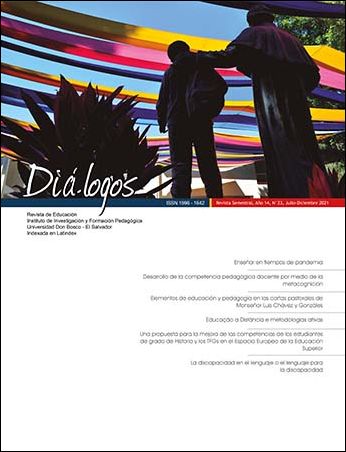Desarrollo de la competencia pedagógica docente por medio de la metacognición
DOI:
https://doi.org/10.5377/dialogos.v23i1.14752Palabras clave:
Competencias del docente, estrategias educativas, formación profesional, superior, habilidad pedagógica, pensamiento, proceso cognitivoResumen
Esta investigación exploró la incidencia de la metacognición para comprobar mejoras en la competencia pedagógica del proceso de planificación de clases de una docente salvadoreña de cuarto grado en una escuela pública. Bajo un enfoque cualitativo, se diseñó un estudio de caso que recolectó datos de la docente participante por medio de una medición previa y posterior sobre el concepto de metacognición y sus implicaciones y de 10 observaciones in situ, acompañadas de sesiones de reflexión y los correspondientes registros de estrategias utilizadas en el desarrollo de las clases. Los resultados demostraron cambios positivos en el pensamiento, discurso y acciones de la docente encaminados a mejorar su mediación pedagógica. Estos resultados revelan que es posible lograr desarrollo profesional docente con mínimos recursos a través de la práctica de la metacognición de manera autónoma.
Descargas
293

